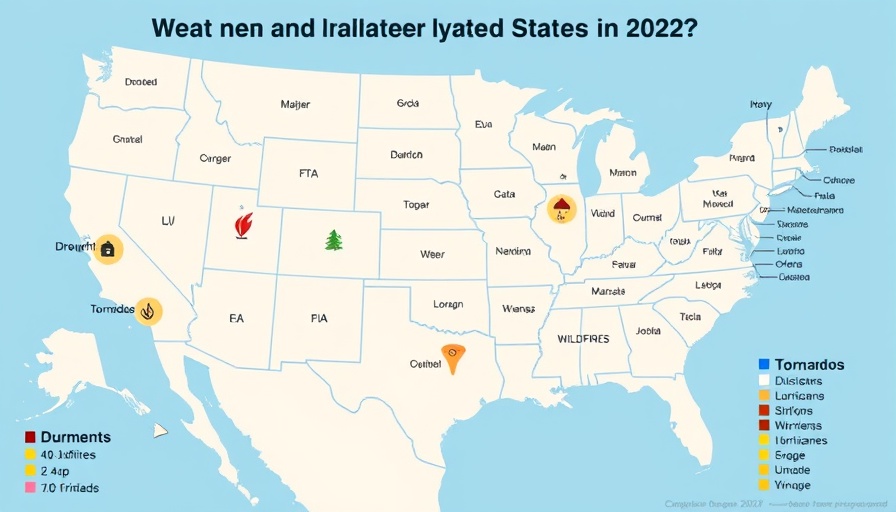
The Significance of the U.S. Global Change Research Program
The United States Global Change Research Program (USGCRP), established by Congress in 1990, is a vital entity responsible for producing the National Climate Assessment. This assessment provides a comprehensive overview of how climate change affects various sectors in America, from agriculture to infrastructure, guiding both policymakers and citizens in making informed decisions. However, the Trump administration's withdrawal of funding threatens the continuity of this crucial work, leaving many experts concerned about the future of climate research and the accuracy of data available to address climate-related challenges.
Implications of Losing Congressional Support for Climate Research
The USGCRP operates under congressional mandates that emphasize the importance of continued research into global change. This support is not merely funding; it represents a commitment to informed governance that recognizes climate change as a pressing issue. According to experts like Dr. Brenda Ekwurzel, the abrupt cancellation of USGCRP activities could severely hinder federal efforts to combat climate change, as the coordinated approach among various agencies is essential for effective research dissemination.
Adverse Effects of Climate Research Funding Cuts
Cutting funds for climate programs not only stifles scientific inquiry but can also jeopardize national security and public health. Climate change has led to an increase in extreme weather events, causing significant damage and displacement for many communities. Institutions that have historically relied on USGCRP data are left without the necessary tools to build resilience against future climate-related obstacles, potentially leading to increased vulnerabilities across the country.
Why Continued Investment in Climate Research Matters
Continued investment in climate research is crucial for a multitude of reasons. It aids in understanding the evolving landscape of climate impacts, fostering innovation in climate adaptation strategies, and ensuring that decision-makers have access to reliable and current data. As Katharine Hayhoe noted, the accelerating pace of climate impacts demands a sustained and thorough national climate assessment process. This isn't simply a matter of scientific interest but rather an essential resource for protecting lives and property in an era of unprecedented climate change.
Future Predictions and the Road Ahead
With the upcoming National Climate Assessment expected in 2027, the path forward raises concerns about both the quality and availability of necessary data. Federal agencies and scientists have expressed trepidation over the lack of support for climate initiatives. The potential hobbled research framework could lead to gaps in knowledge, making it challenging to prepare adequately for climate challenges that lie ahead. It is vital for legislators and the public to advocate for sustaining funding in this crucial area to ensure America's ability to face future climate realities.
What We Can Learn from This Situation
This development serves as a stark reminder of the delicate balance between political forces and scientific integrity. Climate change impacts everyone, and informed dialogue must be prioritized to encourage the integration of scientific findings into policy. A well-supported USGCRP ensures that future assessments will not only refocus on the present but also proactively prepare for future challenges. Moving forward, fostering civic awareness and engagement around climate issues will help shape a political landscape that values science-backed approaches to climate resilience.
It's crucial to stay informed and actively participate in discourse surrounding climate research. By understanding what is at stake, we can collectively push for necessary changes that prioritize sustainable practices and transparency in climate science.
 Add Row
Add Row  Add
Add 




Write A Comment